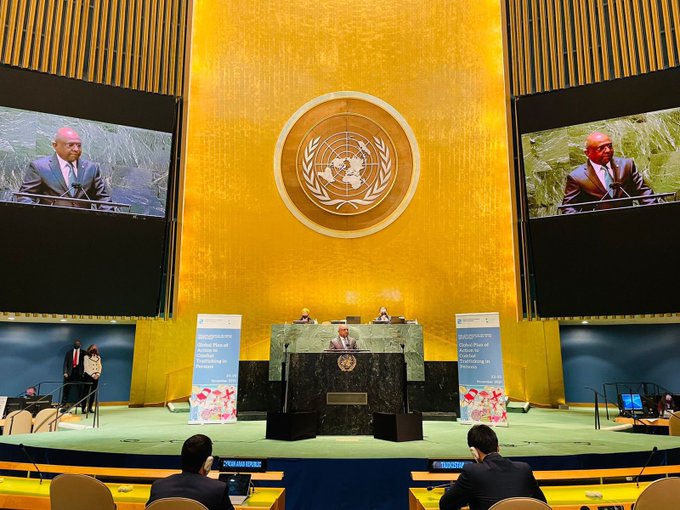Speaking at a UNGA´s high-level meeting, Mr. Shahid urged member states to promote more efforts aimed at preventing and responding to this “vile crime.”
Health crisis has also left survivors with much less supported, he said in his opening speech at this two-day meeting focused on reviewing progress in implementing the UN action plan to fight human trafficking, adopted in July, 2010.
Many countries are now weakened in their ability to identify and hold perpetrators of this crime accountable, the UNGA president stated.
It is therefore critical that the global community redouble efforts to better recover from the pandemic and build resilient communities, this includes obtaining more research, data and analysis on how trafficking takes place, how it evolves, who it is targeting to and who it really affects, he pointed.
UN Deputy Secretary-General Amina Mohammed also highlighted the significance of placing survivors at the heart of policies to prevent and counter trafficking, bring perpetrators to justice, and provide effective access to resources, including compensation.
She also warned that women and girls are disproportionately trafficked, and forced to marry, including children, as well as domestic servitude and forced labor.
mh/pll/jha/ifb










